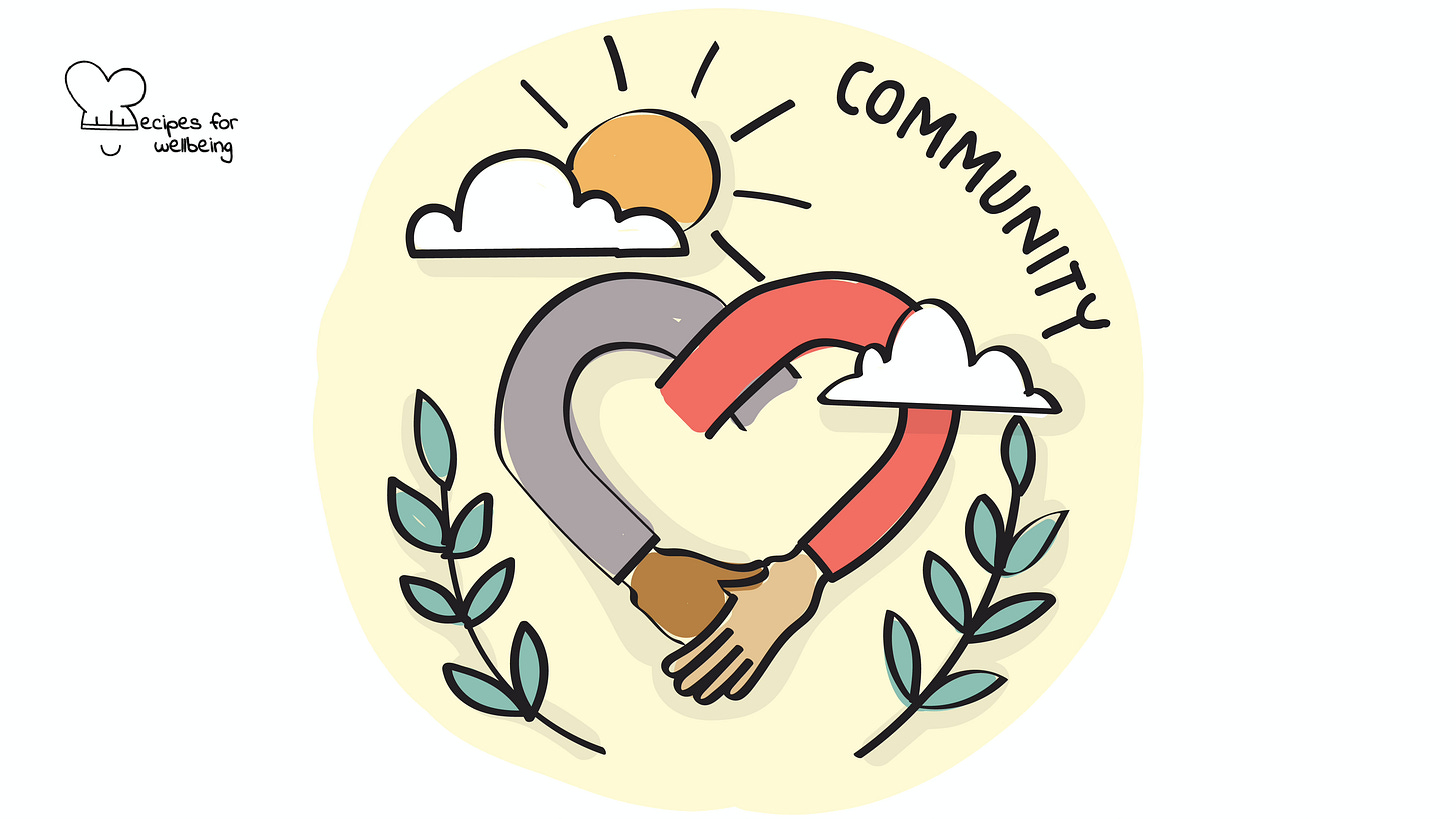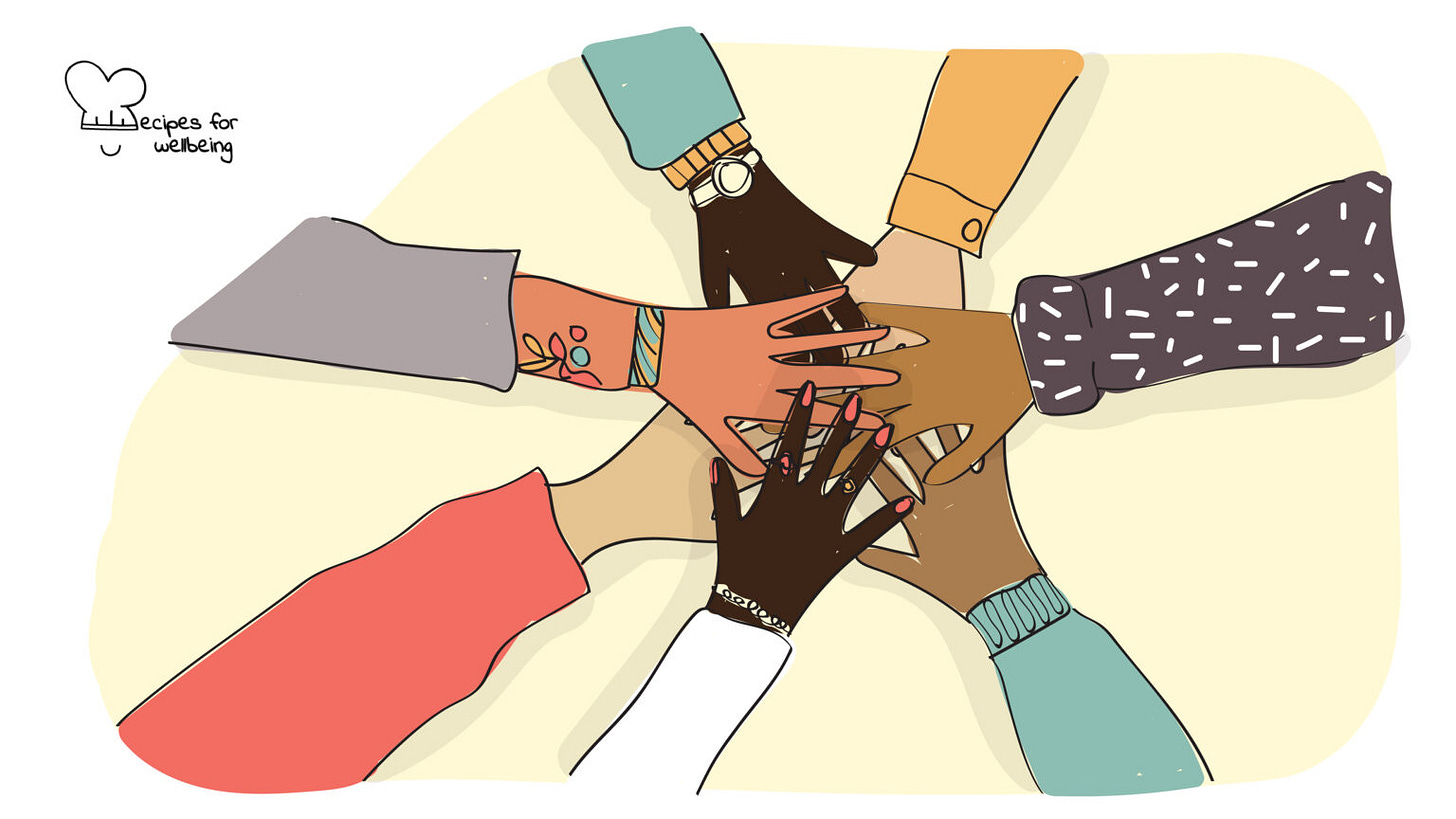Allyship: Supporting and standing with marginalised groups through education, advocacy, and action.
Reimagining allyship as a collective effort
In a world where systemic oppression and inequality persist, the skill of allyship invites those with privilege to stand in solidarity with marginalised communities in the fight for liberation. However, as Irish-Nigerian academic Emma Dabiri argues in “What white people can do next – from allyship to coalition”, the conventional understanding of allyship – the transfer of privilege from the ‘non-marginalised’ to the ‘marginalised’ – is highly problematic and can actually reinforce existing power imbalances. Instead, Dabiri invites you to reimagine allyship as a form of coalition-building focused on identifying shared interests and challenging the root causes of oppression that affect all. By reframing allyship as coalition-building, the onus of systemic change shifts from the individual to the collective.
💡 “What interests me is thinking about the ways in which a vast array of oppressions or forms of disadvantage might have a common origin, in order to identify ways of coalition-building that can focus on the source of the problem, while remaining mindful of the different textures of our varied but interconnected struggles.”
–Emma Dabiri, What white people can do next – from allyship to coalition
In this context, the skill of allyship concerns the capacity to join in solidarity with diverse groups to challenge interlocking systems of oppression. It’s about moving beyond generic notions of ‘marginalisation’ and ‘privilege’ to understand how different communities are impacted by intersectional issues.
What does this mean for changemakers?
Many changemakers work on addressing systemic oppression and inequality and need others to join them in coalition. Practising allyship as coalition-building starts with educating yourself about marginalised communities’ histories, experiences, and perspectives as well as investigating the structural forces that perpetuate inequality. This entails examining your own privileges and complicity, and working to dismantle internalised supremacy in all its forms.
Several liberation thinkers from the Global South remind you that true allyship also means recognising and supporting the agency, resilience, and wisdom of marginalised communities. It’s about following the leadership and solutions generated by those on the frontlines of the struggle and building solidarity across borders and movements, learning from the legacies of resistance that emerge from the Global South.
⚠️ IMPORTANT: Allyship is not about saviourism or paternalism. Rather, it’s about using your privilege to open doors, to challenge discriminatory policies and practices, and to advocate for systemic change. It’s about being willing to take risks, face backlash, and leverage your social and political capital for justice.
Cultivating the skill of allyship as coalition-building is a lifelong journey of unlearning and relearning, of acting and reflecting. It requires ongoing self-examination, accountability, and commitment to keep showing up, even when the work is hard. By embracing this path, you contribute to weaving a social fabric strong enough to hold a world where all can thrive.
How can you practise the skill of allyship?
Here are a few practices to get you started:
Reflection
Take a moment to reflect on the following prompts and share your thoughts and experiences in the comments below.
💭 What is your relationship with allyship? How does the reframing of allyship as coalition-building resonate with you? What would it mean for you to join in solidarity with diverse groups to challenge systemic oppression?
⚠️ REMINDER: Allyship is a skill and lifelong practice of standing in solidarity with marginalised communities to dismantle oppression and build a world of collective liberation.
This skill is connected to the Wholebeing Domain of Community

Community is the ability to extend beyond individual self-care towards fostering community care. It involves placing the onus of action on the community versus the individual. This includes skills such as multiperspectivity and equity.
Teaser 👀
The next post will introduce the skill of celebration. In the meantime, as you engage with our wholebeing practices, share your commitments, insights, and experiences on your #WholebeingJourney in the comments section below.
Big hugs,
Alessia, Greta, and Tariq





